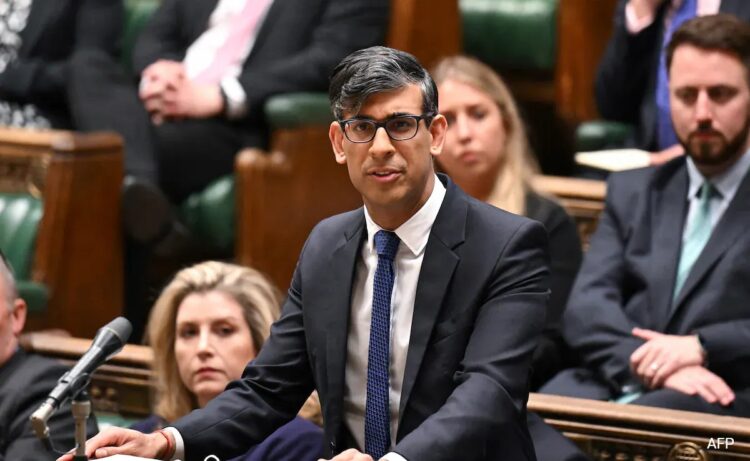UK Prime Minister Rishi Sunak issued a heartfelt apology on Monday to the thousands affected by the contaminated blood scandal, which a damning report concluded had been covered up and could largely have been avoided.
The Infected Blood Inquiry revealed that more than 30,000 individuals were infected with viruses such as HIV and hepatitis between the 1970s and early 1990s due to tainted blood products. Victims included those needing blood transfusions for accidents and surgeries, and individuals with blood disorders like haemophilia treated with donated blood plasma, along with their partners.
Approximately 3,000 people have died, and more fatalities are expected, in what has been described as the NHS’s most catastrophic treatment disaster in its 80-year history.
“I am truly sorry,” Sunak expressed to the House of Commons, labeling the report’s findings “a day of shame for the British state.” He acknowledged the systemic failures, adding, “Time and again, people in positions of power and trust had the chance to stop the transmission of those infections and failed to do so,” and pledged comprehensive compensation for the victims, with costs expected to exceed £10 billion ($12 billion).
The 2,500-page report exposed a “catalogue of failures” with devastating impacts on victims and their families. It highlighted instances where children with bleeding disorders were used as “objects for research.” At one school, 122 pupils with haemophilia were treated with infected blood products between 1970 and 1987, of whom only 30 survive today.
Judge Brian Langstaff, the inquiry’s author, stated that the disaster could largely have been avoided. The report found that despite awareness by the early 1980s that AIDS could be bloodborne, successive governments and health professionals failed to act appropriately. Blood donors were inadequately screened, and contaminated blood products were imported from high-risk sources, including from the United States, where drug users and prisoners were used for donations.
Additionally, excessive and unnecessary transfusions were administered, and attempts were made to conceal the scandal. The report uncovered that health department officials destroyed relevant documents in 1993. “Was there a cover-up? The answer is that there has been,” the report concluded, describing a subtle and pervasive hiding of the truth.
The scandal left many survivors with lifelong health issues, compounded by repeated denials and assurances of adequate treatment. The report detailed how victims were informed of the truth insensitively and inappropriately, exacerbating their suffering.
“This disaster was no accident. People trusted doctors and the government to keep them safe, and that trust was betrayed,” Langstaff remarked.
The inquiry, initiated by former Prime Minister Theresa May in 2017, is one of the largest in the country’s history. Campaigners have hailed the report as a significant victory but lamented that it came too late for many victims who will never see justice. Andy Evans, chairman of the Tainted Blood campaign group, described the report as “momentous,” saying, “We have been gaslit for generations… Sometimes we felt like we were shouting into the wind during the last 40 years.”

















Comments